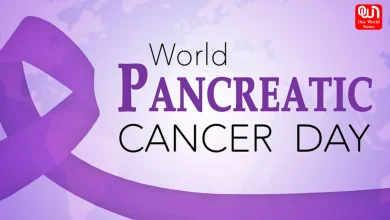How is Doomsday scrolling affecting young people?

How Does Doomsday Affect Our Mental health?
With Covid-19 hitting back to devastate our surroundings, most of us find ourselves constantly scrolling through pandemic-related news and social media feeds – almost inevitably. This is what is called “dooms scrolling” or “doomsday scrolling”.
But behaviour experts also warn that it’s a double-edged sword – while it can keep us updated and help us mobilize resources, it also points us to an exaggerated sense of gloom and doom. The tendency to continue surfing or scrolling through the news, even if that news is sad or depressing, is called “doom-scrolling” or “doomsday scrolling” by behaviour experts.
This tendency can keep us updated and help us mobilize resources, while also leading us to an exaggerated sense of gloom and doom. At the time of Corona, all of us keep watching our mobile phones the whole day after waking up in the morning, before sleeping at night and sometimes even after getting up at night. Any news or information, whether it is good or bad or whatever, keeps on scrolling it, which is called Doomsday scrolling.

Who’s doing Doomsday Scrolling?
Although it is seen more in youth, people of 15 to 45 years are associated with it, people of this age group watch all kinds of news without any thought, be it good, bad or happy or sad, with some intention or the other. live. Therefore, it is seen more in people in the age group of 15 to 45 years.
How Doomsday Scrolling Affects Young People?
It has become like a behavioural habit that has a serious effect on people’s body and mental appearance. Whenever we read or hear any good or bad news, the level of dopamine in our body increases. Dopamine level helps in controlling our body physically and mentally. Excess dopamine level causes many diseases in our body like difficulty in sleeping, anxiety, stress etc. but on the other hand, it helps to concentrate and learn better. It also increases stamina and energy levels. In the long run, doomsday scrolling can increase the levels of cortisol and adrenaline, both stress hormones, which can lead to health issues like heart disease, diabetes and obesity, etc.

Read More: DIY: Best At-Home Keratin Treatment for smooth & silky Hair
Why are we doing this?
It becomes a behavioural addiction – not only does positive news give you a dopamine-high, but negative news also does the same. So it becomes a self-sustaining activity on the lines of any chemical addiction. Even voyeurism is addictive. While on the one hand, it becomes addictive to consume more information, on the other hand, social media algorithms can serve up the feed according to our extreme interest. So it becomes a vicious cycle. Doom scrolling can reinforce negative thoughts and negative mindsets, something that can greatly affect your mental health.

How to Avoid Doomsday Scrolling?
It has become a part of our life along with a bad habit which can harm us a lot. This can cause mental stress and anxiety, which is why it is very important to avoid it. Let’s start with turning off notifications on all social media accounts.” To avoid this, it is necessary to use the tablet on a mobile laptop for a limited time. Apart from work, it is very important to keep away from these gadgets, instead, you can do some other things like read a favourite book or play an interesting game.
Turn off your smartphone’s app notifications, set limits on social media usage, and limit screen time. The key to keeping yourself from doomsday scrolling is self-control. To avoid this, connect yourself to a mobile, laptop or tablet only for a limited time in the day. Apart from working hours, it is very important to keep distance from these gadgets now. Instead, one can read their favourite book or play a game at home.
Have a news story, an interesting write-up or simply a suggestion? Write to us at info@oneworldnews.com







